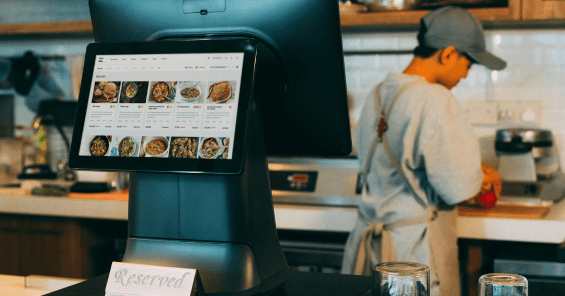

Why Data is Crucial for Franchisers and Franchisees Alike
Discover how the age-old practices of franchising are being revolutionized by digital tools and data analytics, transforming everything from customer engagement to operational oversight. Learn how platforms like MarketMan empower both franchisors and franchisees with actionable insights to make informed decisions that drive success.
At every level of a franchise operation, detailed oversight of data is essential for success
Throughout most of the history of franchising, any number of standard practices, procedures and strategies have been dictated by various rules of thumb. Everything from the franchiser's development strategy down to an individual franchisee’s local marketing efforts was dictated by a mix of learned, anecdotal experience and conventional wisdom shared throughout the industry. Tutor Doctor and a former executive for Maid Right, Jan-Pro Cleaning Systems and FranConnenct.
How To Start And Grow Your Restaurant Business
Whether you're embarking on launching your first restaurant, opening a second (or third) location, or ready to turn your restaurant business into a franchise, this guide will help you make the smartest decisions possible for your business

Digital tools and social media have allowed franchisors to better understand their customers’ buying habits, and marketing teams are using that information to reach the most amenable audiences. “By learning exactly who your buyers are and where they are, you can adjust your marketing campaigns to reach them directly, instead of relying on huge, expensive, high-exposure campaigns that overshoot your target audience,” Thompson said. That same principle applies to franchise development, which Thompson says has changed dramatically in the past ten years. “The idea that more leads equal more deals is an old way of thinking that some franchisors can’t shake,” he said. “We are using more and more digital, content marketing, online storytelling and data-driven, persona- and geo-targeted campaigns to recruit the A-level franchisees that are most closely aligned with a franchisor’s ideal candidate.” Crucially, data tracking also allows franchisors to better understand the health of their systems. Matthew Hardoon, the director of sales for MarketMan, a restaurant inventory management provider, says oversight of metrics from each individual franchise location has become essential to the growth of the system. “Franchisors must understand the comparative metrics of each of their locations,” Hardoon said. “Are the owners doing well in terms of profitability, usage and purchasing? Are food costs in line with the system-wide average? Are owners following the guidelines you’ve set out for them?” By monitoring those metrics and others, Hardoon says franchisors can do more than simply hold individual franchisees accountable for the health of their stores, they can also see which practices among franchisee are most effective and standardize those across the system. The benefits of data tracking and management extend to franchisees as well. Not only does increased oversight from the franchisor allow more responsive and effective support services, but any number of data-management tools and services have been developed specifically for store owners. “There are a variety of POS, BI and inventory control tools available for store owners to understand and leverage their data,” Hardoon said. “Upserve is a restaurant management platform that gives detailed insight into sales; Tenzo is a platform that gives unique insights into projections based on historical data; and of course MarketMan offers insights on key operational data for restaurants, such as purchasing, recipes and stock. These tools give franchisees actionable insight into their data so that they can make better decisions.” Sarah Baker, a marketing coordinator for the Penn Station East Coast Subs franchise, says franchisees can use the same store-level tracking that franchisors use to sure up their own operations. “Franchisees need to understand their data so they can effectively learn where their successes and failures occur,” Baker said. “Those insights can change the way they approach marketing, training or any other aspect of their operation.” Though the benefits of data tracking and management apply to both the franchisor and franchisee, Baker says, like most practices, adoption must begin with the franchisor. “It’s important that the franchisor is transparent about which platforms they are using and how they are using them. They must be cheerleaders for the tool, and that will generate buy-in from franchisees,” Baker said. Thompson says some franchises still have a long way to go in taking full advantage of the tools that are already available, and those that do will continue to succeed as new services continue to become available. “Every business should be collecting all of their data points in a dynamic BI tool that lets every department see the trends of the business, but many aren’t even doing that,” he said. “You have to be able to make informed decisions about your business. These are the decisions that determine whether a business will succeed or fail.”

Elevate your restaurant's efficiency with MarketMan's advanced inventory management software. Automate inventory processes, control food costs, and streamline back-of-house operations to focus on what truly matters—your guests. MarketMan empowers restaurateurs with insights to reduce waste and drive success. Book a demo today to discover the difference MarketMan can make for your business!
Author
Contributors
If you have any questions or need help, feel free to reach out
Don't miss out on maximizing your restaurant's profits! Calculate your ROI with MarketMan
Join over 18,000 restaurants and get the hottest restaurant tips delivered to your inbox
You may also be interested in
Ready to get started?
Talk to a restaurant expert today and learn how MarketMan can help your business






